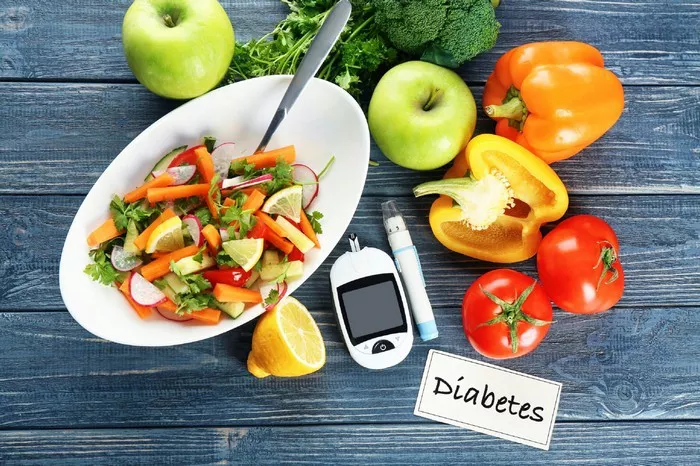Gestational diabetes is a condition that affects pregnant women when their bodies cannot produce enough insulin to meet the increased needs during pregnancy. This results in elevated blood glucose levels, which can affect both the mother and the developing baby. Although it can be managed, one of the key aspects of managing gestational diabetes is proper nutrition. Eating the right foods helps control blood sugar levels and ensures that both the mother and baby are getting the nutrients they need for a healthy pregnancy.
In this article, we will explore the role of diet in managing gestational diabetes, focusing on the types of foods that are particularly beneficial. We will discuss the importance of balanced meals, proper carbohydrate choices, and the inclusion of nutrient-dense foods that can help regulate blood glucose levels.
Understanding Gestational Diabetes
Before diving into the specifics of foods that help manage gestational diabetes, it’s important to understand what the condition entails. During pregnancy, the placenta produces hormones that can make the body less responsive to insulin, leading to insulin resistance. While insulin is responsible for helping the body use glucose for energy, insulin resistance can cause the blood sugar levels to rise, resulting in gestational diabetes.
Gestational diabetes is typically diagnosed between the 24th and 28th week of pregnancy through a blood test known as the oral glucose tolerance test (OGTT). The condition is temporary and usually disappears after childbirth. However, women who have had gestational diabetes are at an increased risk of developing type 2 diabetes later in life, making it important to manage the condition during pregnancy.
The Role of Diet in Managing Gestational Diabetes
A key aspect of managing gestational diabetes is a balanced, well-planned diet. A healthy diet for gestational diabetes is designed to keep blood sugar levels within the target range while ensuring that both mother and baby receive adequate nutrition. The following components are critical in a diet for managing gestational diabetes:
Carbohydrates: Choosing the right types of carbohydrates is vital because they directly impact blood sugar levels. Simple carbohydrates, such as those found in sugary foods and drinks, cause blood sugar levels to spike quickly, whereas complex carbohydrates release glucose more gradually into the bloodstream.
Protein: Protein helps with blood sugar regulation by stabilizing blood glucose levels. It also plays an important role in fetal growth and development during pregnancy.
Fats: Healthy fats, including those from avocados, nuts, and olive oil, support cell development and contribute to overall well-being without raising blood glucose levels.
Fiber: Fiber-rich foods help regulate blood sugar levels by slowing down the absorption of glucose and improving insulin sensitivity. These foods also support digestive health.
Micronutrients: Key vitamins and minerals are important for both maternal health and fetal development. Nutrients such as folate, iron, calcium, and magnesium play vital roles during pregnancy.
Key Foods to Include in a Gestational Diabetes Diet
When managing gestational diabetes, the focus should be on nutrient-dense, whole foods that are rich in fiber, healthy fats, and lean protein. Here are some of the best foods to include in your diet:
1. Whole Grains
Whole grains are an excellent source of complex carbohydrates and fiber, both of which help regulate blood sugar levels. Unlike refined grains, which cause rapid spikes in blood sugar, whole grains are absorbed more slowly, leading to a steadier rise in glucose levels. Some great whole grains to include in a gestational diabetes diet include:
Oats: Rich in fiber, oats help regulate blood sugar levels and can be used in breakfast meals, snacks, or baking. Steel-cut or rolled oats are preferred over instant oats, which can have a higher glycemic index.
Brown Rice: Brown rice is a whole grain that is high in fiber and B vitamins. It is a great alternative to white rice, which has a higher glycemic index.
Quinoa: This grain is a complete protein source, meaning it contains all nine essential amino acids, making it a great addition to a balanced diet.
Whole Wheat Bread and Pasta: When choosing bread or pasta, opt for whole wheat varieties. These contain more fiber and nutrients compared to their refined counterparts.
2. Non-Starchy Vegetables
Vegetables are packed with essential nutrients and fiber. Non-starchy vegetables, in particular, are low in carbohydrates and can be eaten in larger quantities without causing blood sugar spikes. These vegetables provide vitamins, minerals, and antioxidants that support the overall health of the mother and baby. Some non-starchy vegetables that are beneficial for gestational diabetes include:
Leafy Greens: Spinach, kale, arugula, and other leafy greens are rich in fiber, calcium, and folate, all of which are important for pregnancy.
Broccoli: High in fiber and low in calories, broccoli is a great choice for controlling blood sugar levels. It also provides vitamin C, which supports the immune system.
Cauliflower: Cauliflower is a versatile vegetable that can be used in a variety of dishes. It is low in carbohydrates and high in fiber.
Zucchini and Cucumbers: These hydrating vegetables are low in calories and carbohydrates, making them ideal for maintaining blood sugar levels.
3. Lean Proteins
Protein is crucial for maintaining stable blood sugar levels and supporting the growth of the fetus. Lean sources of protein are especially important for managing gestational diabetes. Some excellent sources of lean protein include:
Chicken and Turkey: Skinless poultry is a great source of lean protein that can be easily included in meals. It can be grilled, baked, or roasted to reduce fat content.
Fish: Fatty fish such as salmon, mackerel, and sardines are rich in omega-3 fatty acids, which are important for fetal brain development. Be cautious with mercury levels, however, and limit intake of high-mercury fish like swordfish and shark.
Tofu and Tempeh: These plant-based proteins are excellent choices for vegetarians or those looking to reduce their meat consumption. Tofu and tempeh are low in carbohydrates and high in protein.
Eggs: Eggs are a great source of protein and essential vitamins like vitamin D and B12. They can be used in a variety of dishes, including omelets, salads, or as a snack.
4. Healthy Fats
Incorporating healthy fats into the diet is important for maintaining hormonal balance and supporting the development of the baby. Healthy fats do not cause spikes in blood sugar and provide long-lasting energy. Some excellent sources of healthy fats include:
Avocados: Avocados are rich in monounsaturated fats, which support heart health. They also contain fiber, which helps with blood sugar regulation.
Olive Oil: Olive oil is another excellent source of monounsaturated fat. It can be used in cooking or as a dressing for salads and vegetables.
Nuts and Seeds: Almonds, walnuts, chia seeds, and flaxseeds are all rich in healthy fats, fiber, and protein. These can be eaten as snacks or added to meals for a nutrient boost.
Nut Butters: Natural peanut butter, almond butter, or cashew butter are great options for adding healthy fats and protein to your diet. Choose varieties with no added sugar or salt.
5. Legumes
Legumes are an excellent source of plant-based protein and fiber. They are also low in glycemic index, meaning they help stabilize blood sugar levels. Some healthy legumes to include in a gestational diabetes diet are:
Lentils: Lentils are rich in fiber and protein and are a great addition to soups, stews, or salads.
Chickpeas: Chickpeas can be used in various dishes such as hummus, salads, or roasted as a snack. They are packed with fiber and protein.
Black Beans and Kidney Beans: These beans are high in fiber, protein, and essential minerals such as iron and magnesium.
6. Dairy or Dairy Alternatives
Dairy products provide important nutrients such as calcium, vitamin D, and protein. However, it’s important to choose low-fat or non-fat dairy options to avoid excess saturated fat. For those who are lactose intolerant or prefer non-dairy options, plant-based alternatives like almond milk or soy milk can be included.
Greek Yogurt: Greek yogurt is high in protein and probiotics, which are beneficial for gut health. Opt for plain, unsweetened varieties to avoid added sugars.
Cottage Cheese: Low-fat cottage cheese is an excellent source of protein and calcium. It can be eaten on its own or used in salads or savory dishes.
Almond Milk or Soy Milk: These non-dairy milk alternatives are often fortified with calcium and vitamin D and are low in carbohydrates.
7. Fruits (in Moderation)
Fruits provide essential vitamins and minerals such as vitamin C, potassium, and folate. However, fruits also contain natural sugars, so they should be consumed in moderation. It is best to focus on whole fruits rather than fruit juices or dried fruits, as they are lower in glycemic index. Some fruits that are good for gestational diabetes include:
Berries: Blueberries, strawberries, raspberries, and blackberries are low in sugar and high in fiber and antioxidants.
Apples: Apples are a good source of fiber and vitamin C. They can help regulate blood sugar levels when eaten with a protein or healthy fat.
Citrus Fruits: Oranges, grapefruits, lemons, and limes are rich in vitamin C and have a low glycemic index.
Pears: Pears are high in fiber and help regulate blood sugar levels. They are a good option for a sweet snack or addition to salads.
8. Hydration
Staying hydrated is essential during pregnancy, and water is the best choice for hydration. Dehydration can make it harder for your body to regulate blood sugar levels. You can also drink herbal teas (without added sugar) or consume water-rich foods such as cucumbers and watermelon.
Conclusion
Managing gestational diabetes requires careful attention to diet and lifestyle choices. By focusing on nutrient-dense foods, including whole grains, lean proteins, healthy fats, and fiber-rich vegetables, pregnant women can help regulate their blood sugar levels and promote the health of both themselves and their babies. Working with a healthcare provider, including a registered dietitian or a diabetes educator, is essential in creating a personalized meal plan that aligns with individual needs and preferences.
Ultimately, maintaining a balanced diet and avoiding excessive intake of processed and sugary foods are key to successfully managing gestational diabetes. By making healthy food choices, women with gestational diabetes can enjoy a healthy pregnancy while reducing the risk of complications.
Related topics:
What Foods Lower A1C Naturally























